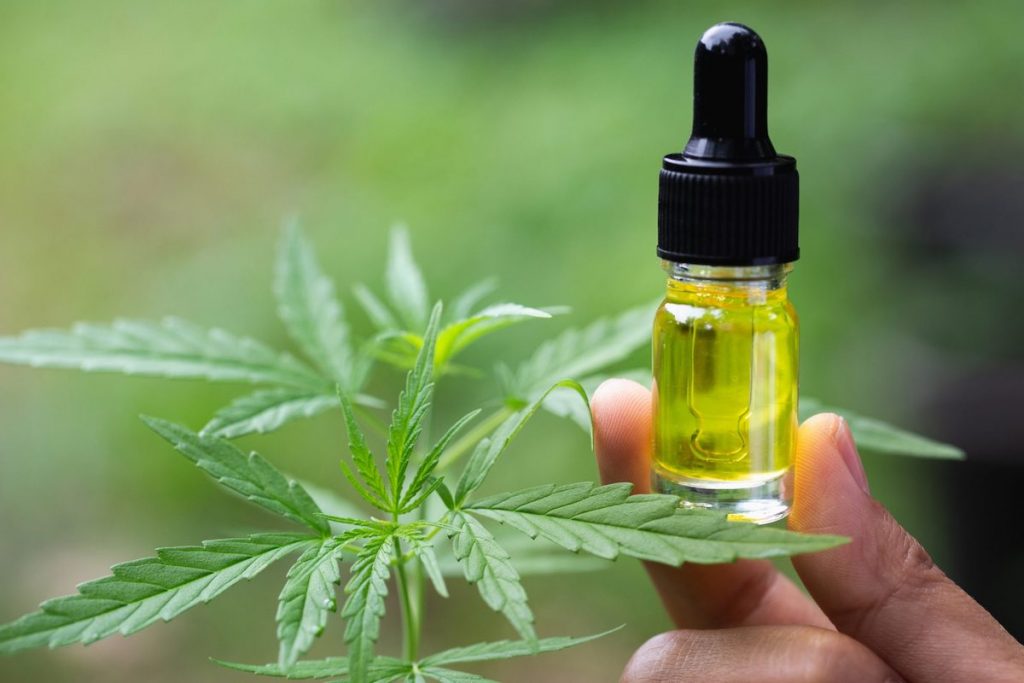
What are the benefits of CBD — and is it safe to use?
A prescription cannabidiol (CBD) oil is considered an effective anti-seizure medication. However, further research is needed to determine CBD's other benefits and safety.
CBD is a chemical found in marijuana. CBD doesn't contain tetrahydrocannabinol (THC), the psychoactive ingredient found in marijuana that produces a high. The usual CBD formulation is oil, but CBD is also sold as an extract, a vaporized liquid and an oil-based capsule. Food, drinks and beauty products are among the many CBD-infused products available online.
Currently, the only CBD product approved by the Food and Drug Administration is a prescription oil called Epidiolex. It's approved to treat two types of epilepsy. Aside from Epidiolex, state laws on the use of CBD vary. While CBD is being studied as a treatment for a wide range of conditions, including Parkinson's disease, schizophrenia, diabetes, multiple sclerosis and anxiety, research supporting the drug's benefits is still limited.
CBD use also carries some risks. Though it's often well-tolerated, CBD can cause side effects, such as dry mouth, diarrhea, reduced appetite, drowsiness and fatigue. CBD can also interact with other medications you're taking, such as blood thinners.
Another cause for concern is the unreliability of the purity and dosage of CBD in products. A recent study of 84 CBD products bought online showed that more than a quarter of the products contained less CBD than labeled. In addition, THC was found in 18 products.
Health Benefits
Researchers are looking for answers when it comes to the full potential of CBD. What have they discovered in the meantime? So far, we know that CBD is a proven treatment when it comes to certain types of epilepsy, and early research is showing promise in regards to various anxiety disorders.Approved to Treat Epilepsy
In 2018, the first FDA-approved drug, cannabidiol (Epidiolex), containing CBD was released on the market to treat two different kinds of epilepsy — Dravet syndrome and Lennox-Gastaut syndrome.
The FDA approved the treatment for patients as young as two years old. Studies showed it was effective in comparison to a placebo in reducing the frequency of seizures.
Anxiety
Though we need more research, a 2015 medical journal review article looked at CBD and its effect on multiple anxiety disorders, including generalized anxiety disorder, seasonal affective disorder, panic disorder, and post-traumatic stress disorder.
The results showed that there was "strong preclinical evidence" to support the treatment of anxiety disorders with CBD, though more research is needed on long-term dosing.
Health Risks
Research surrounding CBD is ongoing, and there are many questions that researchers do not have the answers to yet, such as whether or not the means of taking CBD impacts the risks or efficacy. Some common means of taking CBD include inhaling through a vaporizer, ingesting through food, or taking orally as a pill.
Liver Injury
During drug trials for Epidiolex, the FDA determined liver injury to be a side effect of CBD. Signs of liver injury showed up on blood work used to detect early problems with the liver. You can manage this risk by only taking CBD under the supervision of your doctor.
Interaction with Other Medications
If you are taking other medications, CBD can impact their efficacy, and the dose you are taking may need to be re-evaluated by your doctor. CBD can potentially interact with other medications to cause side effects.
Because there is limited research on how CBD interacts with prescription drugs and with standard over-the-counter supplements, it is best to talk to your doctor before taking CBD if you are taking other medications.
Fertility Damage
Though not much research has looked specifically at CBD, it seems that there is a negative relationship between cannabis use and sperm count, as well as other measures of male fertility, including sperm viability and motility.
Most of these studies have focused on animal participants, and further research is needed. Experts recommend awareness around these potential side effects when prescribing cannabis to patients who are of reproductive age.
Amounts and Dosage
Because the FDA currently does not regulate CBD, there are no specific recommended doses. Doses in most clinical trials have ranged from 100 to 800 milligrams a day.
Before using any CBD product, you should speak to your doctor to come up with a safe dosage plan that works for you. This plan should also take into account your symptoms and any other medications or supplements that you may be taking.







